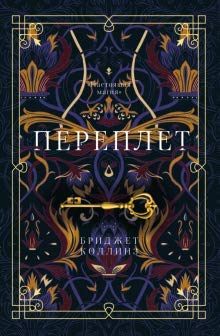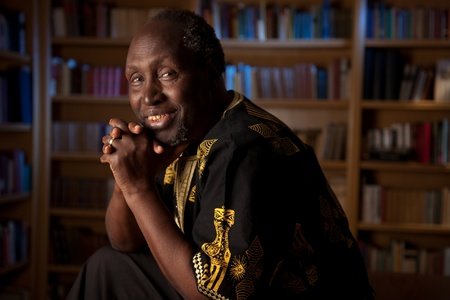 |
| photo: Kayla Pavao |
R.M. Gray hails from a quaint Texas town best known for its soda, shiplap, and mammoth graveyards. She lives beside a field of bluebonnets with her film fanatic husband and two giant dogs, where she enjoys writing stories about pirates, magic, mystery, and all things fantastical. Her debut, Nightweaver (Little, Brown Books for Young Readers), is the first in a YA romantasy series.
Handsell readers your book in 25 words or less:
Pirates of the Caribbean meets gothic Downton Abbey but with a dark, magical twist, perfect for fans of Powerless by Lauren Roberts and Heartless Hunter by Kristen Ciccarelli.
On your nightstand now:
Chocolat by Joanne Harris. I adore the movie, which is whimsical and romantic and inspirational all at the same time, so I decided this year I was finally going to read the novel.
The Ballad of Never After by Stephanie Garber. After reading Garber's Caraval series, I could hardly wait to get my hands on this series set in the same world as Caraval. I devoured the first book, and I can't turn the pages of the sequel fast enough!
Legendborn by Tracy Deonn. This has been on my TBR forever now and, with the release of Oathbound, the final book in the trilogy, I'm finally ready to dive in.
Sunrise on the Reaping by Suzanne Collins. The Hunger Games was one of the first YA books I ever read, and it has haunted me ever since. Collins is a mastermind, and I just know this book is going to break my heart.
Favorite book when you were a child:
How will I ever choose one? I won't! The Magic Tree House series by Mary Pope Osborne, all the Nancy Drew books by Carolyn Keene, Gulliver's Travels by Jonathan Swift, and of course, all the various educational books on dinosaurs that I forced my poor mother to read at night as I was falling asleep.
Favorite book to read to a child:
The Book of Three by Lloyd Alexander. The prose is fun, the pacing is swift, and Taran speaks to the child in me that always wanted to wield a sword and go off on an adventure. Also, I'm quite proud of my Gurgi voice.
Your top five authors:
Gail Carson Levine, A.G. Howard, Jodi Lynn Anderson, Louisa May Alcott, Suzanne Collins.
Book you've faked reading:
Divine Rivals by Rebecca Ross. It's at the top of my TBR, but every time I'm with bookish friends and they rave about it, I just smile and nod and pretend I know what they're talking about. I wouldn't want to ruin their fun just because I'm drowning in books.
 Book you're an evangelist for:
Book you're an evangelist for:
Tiger Lily by Jodi Lynn Anderson. Told through Tinker Bell's point-of-view, the story follows Tiger Lily, showing what Tiger Lily was up to before and during Peter Pan. I don't think I've ever cried so hard reading a book in my entire life, and I think about this story at least twice a day.
Book you've bought for the cover:
Forged by Blood by Ehigbor Okosun. The colors? Stunning! The art? Striking! It's one of those covers that catches your eye from across the bookshop and stops you in your tracks.
Book you hid from your parents:
I never had to hide books from my parents. I did try to hide how many books I was attempting to buy during any given trip to the bookstore, to no avail.
Book that changed your life:
The Two Princesses of Bamarre by Gail Carson Levine. The book follows two sisters: the brave older sister, Meryl, and the timid younger sister, Addie. Growing up, I was the timid younger sister, with a bold, outgoing older sister, so I saw a lot of myself and my own sister in this story. To this day, I think of Addie's journey of self-discovery whenever I'm faced with challenges. I even quoted a passage from the book at my sister's wedding.
Favorite line from a book:
"I like to think that nothing's final, and that everyone gets to be together even when it looks like they don't, that it all works out even when all the evidence seems to say something else, that you and I are always young in the woods, and that I'll see you sometime again, even if it's not with any kind of eyes I know of or understand." --from the final paragraph of Tiger Lily, which makes me sob every time I read it.
Five books you'll never part with:
The Two Princesses of Bamarre by Gail Carson Levine, of which my paperback copy is well-loved. Tiger Lily by Jodi Lynn Anderson, because I read it every time I need a good cry. Alice's Adventures in Wonderland by Lewis Carroll, not only because I collect special editions (gifted to me by my husband and family), but because it inspired my love of storytelling. Little Women by Louisa May Alcott, because it's my all-time favorite comfort book. Practical Magic by Alice Hoffman, because every time I read it I notice something new, and I'll never get tired of the Owens sisters.
Book you most want to read again for the first time:
The entire Shatter Me series by Tahereh Mafi. Mafi's style is captivating, the characters are lovable, and the plot was everything I could have hoped for in a dystopian romance. I never wanted those books to end!
![]() Scholastic is combining its Trade Publishing, Book Fairs and Book Clubs into a new Children's Book Group, effective June 1. Sasha Quinton, who has been president, school reading events, becomes executive v-p and president of the Children's Book Group, adding Trade Publishing to her portfolio. The company said that she has led substantial gains in profitability across Book Clubs and Book Fairs, including record revenue per fair through a strong focus on kid-first marketing and merchandising.
Scholastic is combining its Trade Publishing, Book Fairs and Book Clubs into a new Children's Book Group, effective June 1. Sasha Quinton, who has been president, school reading events, becomes executive v-p and president of the Children's Book Group, adding Trade Publishing to her portfolio. The company said that she has led substantial gains in profitability across Book Clubs and Book Fairs, including record revenue per fair through a strong focus on kid-first marketing and merchandising.










 "Especially in this climate, in this time, bookstores are very hopeful," said Toni Chappell, owner of
"Especially in this climate, in this time, bookstores are very hopeful," said Toni Chappell, owner of 
 Fiction went from idea to opening very quickly, and stemmed from a conversation Chappell had with a friend. Chappell mentioned how much she loved English bookshops, and her friend told not only that she should do it but that she also had an ideal spot in mind. Chappell's friend contacted the building's landlord, and the landlord called Chappell. Fiction was open five months later.
Fiction went from idea to opening very quickly, and stemmed from a conversation Chappell had with a friend. Chappell mentioned how much she loved English bookshops, and her friend told not only that she should do it but that she also had an ideal spot in mind. Chappell's friend contacted the building's landlord, and the landlord called Chappell. Fiction was open five months later.
 "It is fantastic, actually," she said. "Our goal is to create a community-hub type of thing and get people talking about books and to encourage literacy."
"It is fantastic, actually," she said. "Our goal is to create a community-hub type of thing and get people talking about books and to encourage literacy."  The French Books Mediator confirmed that
The French Books Mediator confirmed that  Trading House BMM, a Russian book distributor, sent a letter to bookshops in the country with a list of 37 titles--including works by Jeffery Eugenides, Bridget Collins, Slovenian philosopher Slavoj Zizek, Japanese novelist Ryu Murakami, and a number of Russian writers--that
Trading House BMM, a Russian book distributor, sent a letter to bookshops in the country with a list of 37 titles--including works by Jeffery Eugenides, Bridget Collins, Slovenian philosopher Slavoj Zizek, Japanese novelist Ryu Murakami, and a number of Russian writers--that  The Booksellers Association of the U.K. & Ireland and Bookshop.org U.K. are combining their respective Book of the Month campaigns for June
The Booksellers Association of the U.K. & Ireland and Bookshop.org U.K. are combining their respective Book of the Month campaigns for June 
 Author Loretta Ellsworth was in conversation at
Author Loretta Ellsworth was in conversation at 
 "
"
 Book you're an evangelist for:
Book you're an evangelist for: The challenges of love and fidelity provide the grist for Helen Schulman's smart and often witty collection, the aptly titled Fools for Love. In its 10 well-shaped stories, set mostly in reasonably well-to-do segments of New York City's populace, Schulman (
The challenges of love and fidelity provide the grist for Helen Schulman's smart and often witty collection, the aptly titled Fools for Love. In its 10 well-shaped stories, set mostly in reasonably well-to-do segments of New York City's populace, Schulman (